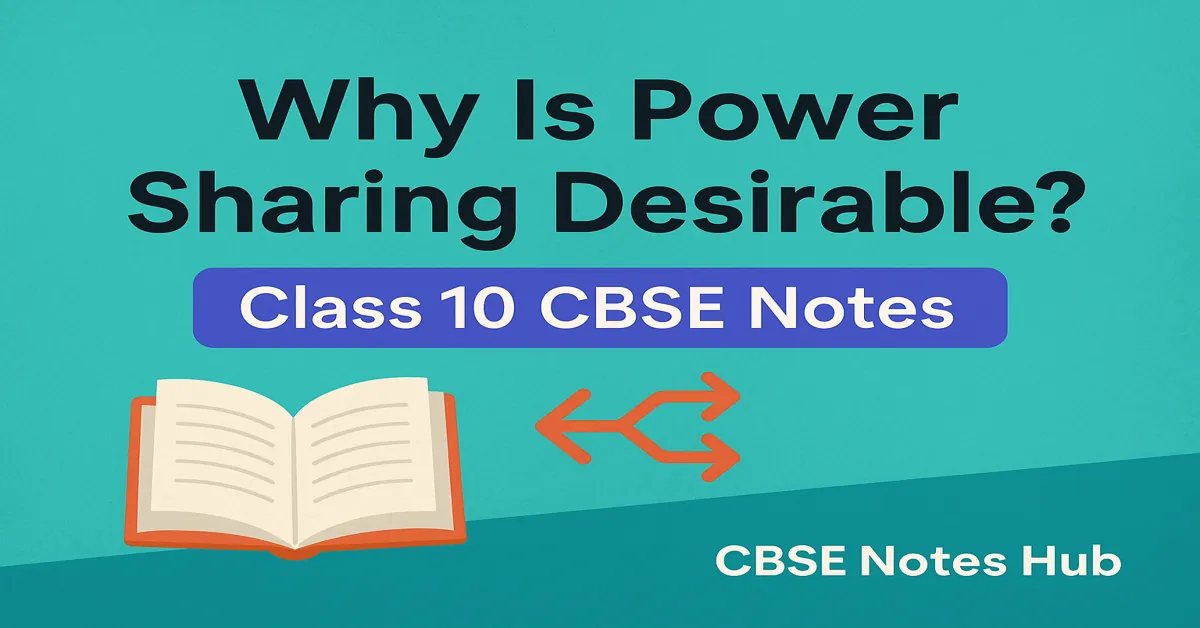“This post explains the need and importance of power sharing in a democracy and describes the different forms through which it is practiced.”
Power Sharing – Part 2
Why Power Sharing is Desirable
- Prudential Reason: Based on careful calculations of gain. Helps reduce the possibility of conflicts between social groups.
- Social Conflict: Leads to violence and political instability. Power sharing ensures stability of political order.
- Attractive Option in Short Run: Imposing the will of the majority community over others.
- In Long Run: Such an option undermines the unity of the nation.
Moral Reason of Power Sharing
- It is the very spirit of democracy.
- It signifies the value of power sharing in a society.
Examples
- Prudential Reason: Power is shared between central and state governments so that states can manage their own problems and reduce conflicts.
- Moral Reason: Power sharing allows people to take part in decisions, which is the real meaning of democracy.
Power sharing is necessary in a democracy because people rule through self-government.
📘 Must Read:
Power Sharing in Belgium and Sri Lanka – Class 10
Forms of Power Sharing
Horizontal Power Sharing
- Power is shared among different organs of the government.
- All organs are placed at the same level.
- No organ exercises unlimited power.
- Each organ checks the others.
- This arrangement is also called a system of checks and balances.
Legislature → Executive → Judiciary
Vertical Power Sharing
- Power is shared among different levels of the government.
- As given in the Constitution:
- Union / Central Government
- State Government
- Local Government
Power Sharing Among Different Social Groups
- Power is shared among different social groups such as religious and linguistic groups.
- Community government in Belgium is a good example of this arrangement.
Power Sharing Among Political Parties, Pressure Groups, and Movements
- Power is shared among political parties, pressure groups, and movements.
- Coalition government is an example of this arrangement.
Source: NCERT
📌 Also Read:
Visualising the Nation – Class 10 History Notes
Unification of Germany, Italy and Britain – Class 10

